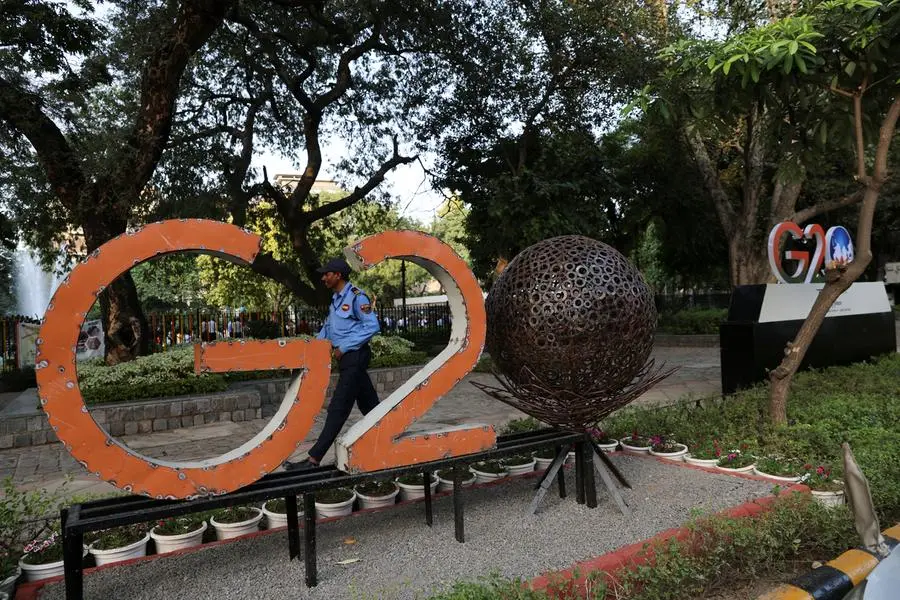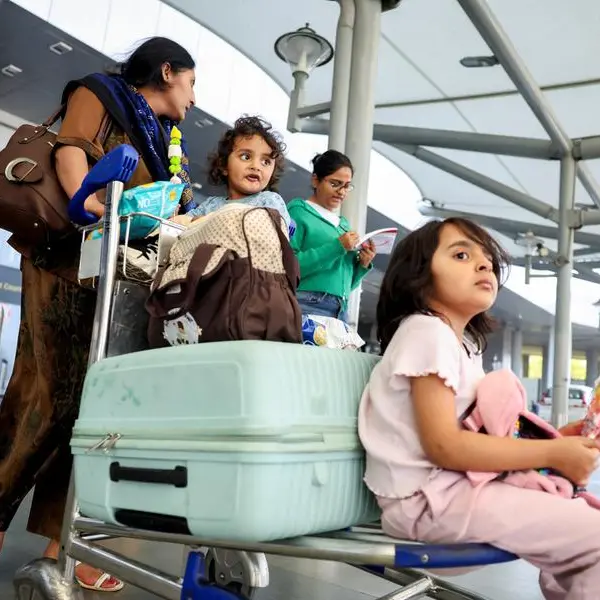PHOTO
NEW DELHI - G20 leaders on Saturday agreed to pursue tripling renewable energy capacity globally by 2030 and accepted the need to phase-down unabated coal power, but stopped short of setting major climate goals.
The world's 20 major economies have had disagreements on commitments to reduce fossil fuel use, cut green house gas emissions and increase renewable energy targets.
One such sticking point was a proposal by Western countries to triple renewable energy capacity by 2030 and cut green house gas emissions by 60% by 2035, which was opposed by Russia, China, Saudi Arabia and India during sherpa level meetings, three officials told Reuters.
The declaration adopted by G20 leaders on the first day of the two-day summit in New Delhi did not mention cutting green house emissions.
It said member nations "will pursue and encourage efforts to triple renewable energy capacity globally ... in line with national circumstances by 2030."
The G20 member countries together account for over 80% of global emissions and a cumulative effort by the group to decarbonise is crucial in the global fight against climate change.
Climate talks at the bloc's summit will be keenly watched by the world ahead of the COP28 U.N climate summit in the United Arab Emirates later this year.
The G20 has agreed that "national circumstances" will be factored into the phasing down of "unabated coal power" but did not mention reduction in usage of crude oil, suggesting that countries like oil-rich Saudi Arabia prevailed during the negotiations.
On phasing down fossil fuels, the declaration said the leaders "recognise the importance" to accelerate measures that will help transition to low-emission energy systems, "including accelerating efforts towards phasedown of unabated coal power, in line with national circumstances".
The bloc had failed to reach consensus during previous ministerial meetings on environment and energy. The declaration also does not commit to reaching net zero commitments faster than 2050, something that the G7 nations were pushing for.
Instead, the declaration said: "we reiterate our commitment to achieve global net zero green house gas emissions/carbon neutrality by or around mid-century, while taking into account the latest scientific developments and in line with different national circumstances".
It also noted the need to provide low-cost and sustainable financing to developing countries to support their transition to lower emissions.
(Reporting by Shivam Patel; Editing by YP Rajesh and Kim Coghill)





















